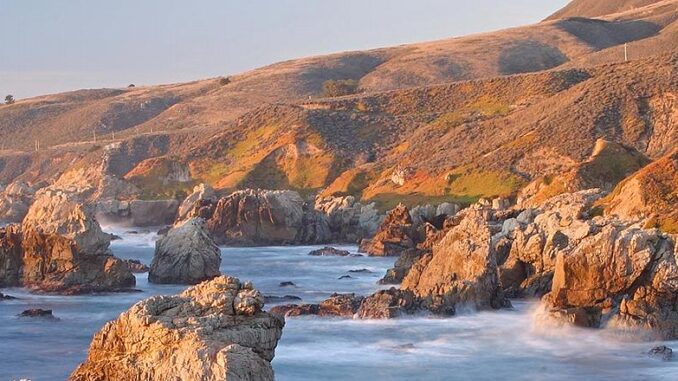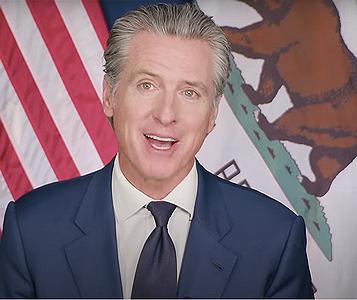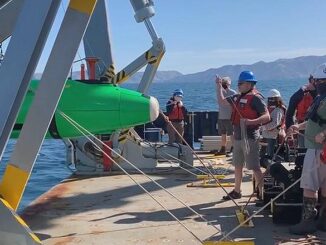
BOSTON, Massachusetts, October 21, 2025 (ENS) – The State of Massachusetts and the State of California have announced their intentions to join the nonprofit International Union for the Conservation of Nature, IUCN. Based in Switzerland, the IUCN is the world’s largest and most diverse environmental membership network with 1,400 governments and non-governmental organizations committed to global action on biodiversity conservation.
Governor Gavin Newsom of Californnia and Massachusetts Governor Maura Healey announced October 10 that California, with Massachusetts, would make history as the first American states, and among the first North American subnational governments, to join the IUCN to uphold this global commitment to collective action on biodiversity and climate.
As the Trump administration continues to wage war on science and engage in dangerous climate denialism, Governor Newsom’s announcement doubles down on California’s commitment to fight climate change and protect nature both at home and around the world.

“As we become one of the first states in the nation to join the International Union for Conservation of Nature, California’s message to the world is clear: we are a stable and reliable partner in the global effort to protect our planet. California is on track to conserve 30 percent of our lands and coastal waters by 2030, and by working with leaders across the globe, we’ll help shape a better world not just for Californians but for everyone,” Governor Newsom said.
The announcements were made in conjunction with the 2025 IUCN World Conservation Congress, which was held earlier this month in Abu Dhabi, United Arab Emirates.
“Massachusetts is leading the way to a future where people and nature thrive. As the first states to announce our intention to join the IUCN, Massachusetts and California are standing firm by our commitments to lead the nation on biodiversity conservation,” Massachusetts Governor Maura Healey said.
“The value of this work is undeniable. This will help us protect wildlife, strengthen our local economies, and really preserve what makes Massachusetts so special,” she said.
Massachusetts and California would be the first U.S. states to join and become official members in 2026.
Membership in the IUCN will deepen Massachusetts’ commitment to global action on biodiversity and climate.
Massachusetts’ announcement follows the state’s recent announcement of nation-leading Biodiversity Conservation Goals.
As called for by Governor Maura Healey’s Executive Order No. 618, this ambitious, 25-year plan defines a whole-of-government approach to rebuild biodiversity and invest in nature to sustain our health and well-being, food security, and economy.

“Biodiversity is a key climate solution. By joining this network of global leaders at the forefront of tackling the climate and biodiversity crisis, we can collaborate, learn, innovate, and drive progress, both globally and right here in the Bay State,” said Massachusetts Climate Chief Melissa Hoffer.
“Massachusetts is proudly leading in harnessing the full potential of our natural world to improve the quality of life for all of our residents. Protecting our mountains, coastlines, and marshes is core to our tourism economy and the health of our communities. Being part of IUCN will help our state accelerate our work to make our communities safer, healthier, and better prepared for extreme weather,” Rebecca Tepper, Secretary of the state’s Executive Office of Energy and Environmental Affairs, said.
“Massachusetts is proud to be recognized by the IUCN for our commitment to protect and restore nature for wildlife and people,” Massachusetts Department of Fish & Game Commissioner Tom O’Shea said.
“Joining the IUCN will be a huge opportunity to elevate our work on the global stage. We look forward to building partnerships across boundaries, tapping into the knowledge and expertise of the IUCN network, and pursuing innovative approaches and cutting-edge solutions here at home,” O’Shea said.
At the heart of New England, Massachusetts faces mounting challenges from climate change, including coastal and inland flooding as well as increasing drought, which threaten both its ecosystems and the livelihoods of its communities.
By joining IUCN, Massachusetts will strengthen its capacity to address these challenges through access to a global network of conservation expertise and resources.
Massachusetts’ collaboration through IUCN is expected to enhance ongoing initiatives in biodiversity conservation, restoration, and climate resilience. The partnership will open avenues for Massachusetts to engage in international programs and strengthen its participation in international efforts to foster integrated approaches to environmental protection and community well-being.
California Shows Conservation Leadership
At the IUCN World Conservation Congress, the Newsom administration accepted the IUCN Green List award for California’s marine protected area network. The Green List is a high-profile international certification that recognizes the most successful examples of biodiversity conservation worldwide.
California’s system of marine protected areas, which spans the state’s 1,100-mile coastline and covers over 16 percent of state waters, is the first nature network in the world to receive this honor.
Green Listing of the state’s marine protected areas network represents the culmination of a seven-year evaluation process conducted by IUCN in close collaboration with California experts. This process helped IUCN tailor its Green List standard so that it could be applied to a large-scale network. This will ultimately help advance nature networks around the world.
In California, pollution is down and the economy is up. Greenhouse gas emissions in the state are down 20 percent since 2000 – even as the state’s GDP increased 78 percent in that same time period all while becoming the world’s fourth largest economy.
The state also continues to set clean energy records. California was powered by two-thirds clean energy in 2023, the latest year for which data is available – the largest economy in the world to achieve this level of clean energy. The state has run on 100 percent clean electricity for some part of the day almost every day this year.
Since the beginning of the Newsom Administration, battery storage is up to over 15,000 megawatts – a 1,900 percent+ increase, and over 30,000 megawatts of new resources have been added to the electric grid.
“We are thrilled to have California declare their intention to join IUCN as a subnational Member – the first state along with Massachusetts within the United States of America to do so,” IUCN Director General Grethel Aguilar said.
The IUCN leader explained, “IUCN subnational Members are crucial for global conservation because they provide direct access to implement solutions on the ground, they influence national and international policy, they foster collaboration, and they offer diverse knowledge and practical experience to help all of us implement a global conservation agenda. We are certain that California will play a leadership role as an IUCN subnational Member.”
Featured image: Spanning California’s entire 1,770 km coastline and protecting 16% of state waters, the California MPA Network comprises 124 sites governed under a single, science-based, stakeholder-driven system. It is the largest MPA network in North America and one of the most comprehensive in the world. (Photo courtesy IUCN)
© 2025, Environment News Service. All rights reserved. Content may be quoted only with proper attribution and a direct link to the original article. Full reproduction is prohibited.



